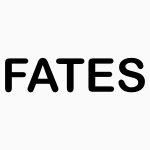24 papers:
 DAC-2014-WuWNBP #on the
DAC-2014-WuWNBP #on the- On Timing Closure: Buffer Insertion for Hold-Violation Removal (PCW, MDFW, IN, SB, VP), p. 6.
 KDD-2014-AhmedDNK #framework #graph
KDD-2014-AhmedDNK #framework #graph- Graph sample and hold: a framework for big-graph analytics (NKA, NGD, JN, RRK), pp. 1446–1455.
 STOC-2013-BeckI
STOC-2013-BeckI- Strong ETH holds for regular resolution (CB, RI), pp. 487–494.
 CSCW-2012-CheungH #game studies #lessons learnt
CSCW-2012-CheungH #game studies #lessons learnt- Remix and play: lessons from rule variants in texas hold’em and halo 2 (GC, JH), pp. 559–568.
 CHI-2011-DijkstraPV #flexibility #performance
CHI-2011-DijkstraPV #flexibility #performance- Evaluating effects of structural holds on pointing and dragging performance with flexible displays (RD, CP, RV), pp. 1293–1302.
 ICEIS-J-2011-SchwindF #automation
ICEIS-J-2011-SchwindF #automation- Automating Texas Hold’em Poker with PLICAS (MS, CF), pp. 193–207.
 ICEIS-v2-2011-FriedrichS #named
ICEIS-v2-2011-FriedrichS #named- PLICAS — A Texas Hold’em Poker Bot (CF, MS), pp. 63–72.
 CHI-2010-OzencKZOM #design #how
CHI-2010-OzencKZOM #design #how- How to support designers in getting hold of the immaterial material of software (FKO, MK, JZ, SO, BAM), pp. 2513–2522.
 CSCW-2010-BardramH #case study #coordination #why
CSCW-2010-BardramH #case study #coordination #why- Why the plan doesn’t hold: a study of situated planning, articulation and coordination work in a surgical ward (JEB, TRH), pp. 331–340.
 DAC-2008-KurimotoSAYOTS #detection #fault #optimisation #scalability
DAC-2008-KurimotoSAYOTS #detection #fault #optimisation #scalability- Phase-adjustable error detection flip-flops with 2-stage hold driven optimization and slack based grouping scheme for dynamic voltage scaling (MK, HS, RA, TY, HO, HT, HS), pp. 884–889.
 DAC-2007-SrivastavaR #equation
DAC-2007-SrivastavaR #equation- Interdependent Latch Setup/Hold Time Characterization via Euler-Newton Curve Tracing on State-Transition Equations (SS, JSR), pp. 136–141.
 DATE-2007-SinanogluS #modelling
DATE-2007-SinanogluS #modelling- Diagnosis, modeling and tolerance of scan chain hold-time violations (OS, PS), pp. 516–521.
 DATE-2007-SrivastavaR #agile
DATE-2007-SrivastavaR #agile- Rapid and accurate latch characterization via direct Newton solution of setup/hold times (SS, JSR), pp. 1006–1011.
 DAC-2006-GhoshMKR #power management #reduction #self
DAC-2006-GhoshMKR #power management #reduction #self- Self-calibration technique for reduction of hold failures in low-power nano-scaled SRAM (SG, SM, KK, KR), pp. 971–976.
 DAC-2006-LinZ #algorithm #constraints #performance
DAC-2006-LinZ #algorithm #constraints #performance- An efficient retiming algorithm under setup and hold constraints (CL, HZ), pp. 945–950.
 DAC-2006-MajumdarCG #analysis #validation
DAC-2006-MajumdarCG #analysis #validation- Hold time validation on silicon and the relevance of hazards in timing analysis (AM, WYC, JG), pp. 326–331.
 CHI-2006-KayeVADDORP
CHI-2006-KayeVADDORP- To have and to hold: exploring the personal archive (JK, JV, SA, AD, SD, LO, IR, TP), pp. 275–284.
 DAC-2005-Vasudevan #simulation
DAC-2005-Vasudevan #simulation- Simulation of the effects of timing jitter in track-and-hold and sample-and-hold circuits (VV), pp. 397–402.
 FATES-2003-SenG #on the
FATES-2003-SenG #on the- On Checking Whether a Predicate Definitely Holds (AS, VKG), pp. 15–29.
 STOC-1999-ChenKLW #bound
STOC-1999-ChenKLW #bound- Optimal Buy-and-Hold Strategies for Financial Markets with Bounded Daily Returns (GHC, MYK, YDL, HKW), pp. 119–128.
 CHI-1998-HarrisonFGMW #exclamation #user interface
CHI-1998-HarrisonFGMW #exclamation #user interface- Squeeze Me, Hold Me, Tilt Me! An Exploration of Manipulative User Interfaces (BLH, KPF, AG, CM, RW), pp. 17–24.
 SIGMOD-1993-CareyHL #challenge #tuple
SIGMOD-1993-CareyHL #challenge #tuple- Tapes Hold Data, Too: Challenges of Tuples on Tertiary Store (MJC, LMH, ML), pp. 413–417.
 DAC-1992-BhattacharyaAA #fault #generative #testing #using
DAC-1992-BhattacharyaAA #fault #generative #testing #using- Delay Fault Test Generation for Scan/Hold Circuits Using Boolean Expressions (DB, PA, VDA), pp. 159–164.
 HT-1991-MarshallHRJ #hypermedia #named
HT-1991-MarshallHRJ #hypermedia #named- Aquanet: A Hypertext Tool to Hold Your Knowledge in Place (CCM, FGH, RAR, WCJJ), pp. 261–275.
 DAC-2014-WuWNBP #on the
DAC-2014-WuWNBP #on the KDD-2014-AhmedDNK #framework #graph
KDD-2014-AhmedDNK #framework #graph STOC-2013-BeckI
STOC-2013-BeckI CSCW-2012-CheungH #game studies #lessons learnt
CSCW-2012-CheungH #game studies #lessons learnt CHI-2011-DijkstraPV #flexibility #performance
CHI-2011-DijkstraPV #flexibility #performance ICEIS-J-2011-SchwindF #automation
ICEIS-J-2011-SchwindF #automation ICEIS-v2-2011-FriedrichS #named
ICEIS-v2-2011-FriedrichS #named CHI-2010-OzencKZOM #design #how
CHI-2010-OzencKZOM #design #how CSCW-2010-BardramH #case study #coordination #why
CSCW-2010-BardramH #case study #coordination #why DAC-2008-KurimotoSAYOTS #detection #fault #optimisation #scalability
DAC-2008-KurimotoSAYOTS #detection #fault #optimisation #scalability DAC-2007-SrivastavaR #equation
DAC-2007-SrivastavaR #equation DATE-2007-SinanogluS #modelling
DATE-2007-SinanogluS #modelling DATE-2007-SrivastavaR #agile
DATE-2007-SrivastavaR #agile DAC-2006-GhoshMKR #power management #reduction #self
DAC-2006-GhoshMKR #power management #reduction #self DAC-2006-LinZ #algorithm #constraints #performance
DAC-2006-LinZ #algorithm #constraints #performance DAC-2006-MajumdarCG #analysis #validation
DAC-2006-MajumdarCG #analysis #validation CHI-2006-KayeVADDORP
CHI-2006-KayeVADDORP DAC-2005-Vasudevan #simulation
DAC-2005-Vasudevan #simulation FATES-2003-SenG #on the
FATES-2003-SenG #on the STOC-1999-ChenKLW #bound
STOC-1999-ChenKLW #bound CHI-1998-HarrisonFGMW #exclamation #user interface
CHI-1998-HarrisonFGMW #exclamation #user interface SIGMOD-1993-CareyHL #challenge #tuple
SIGMOD-1993-CareyHL #challenge #tuple DAC-1992-BhattacharyaAA #fault #generative #testing #using
DAC-1992-BhattacharyaAA #fault #generative #testing #using HT-1991-MarshallHRJ #hypermedia #named
HT-1991-MarshallHRJ #hypermedia #named









